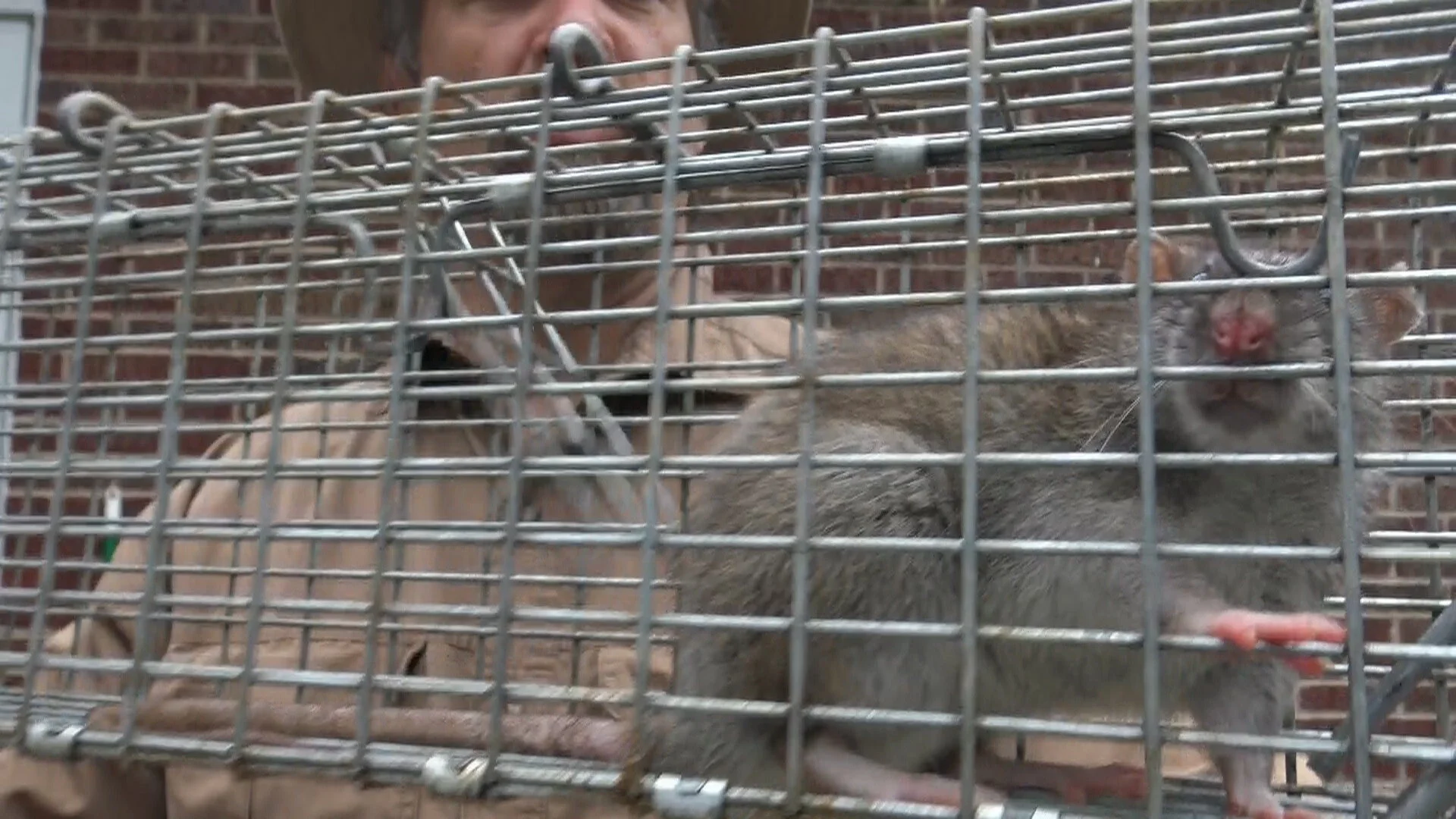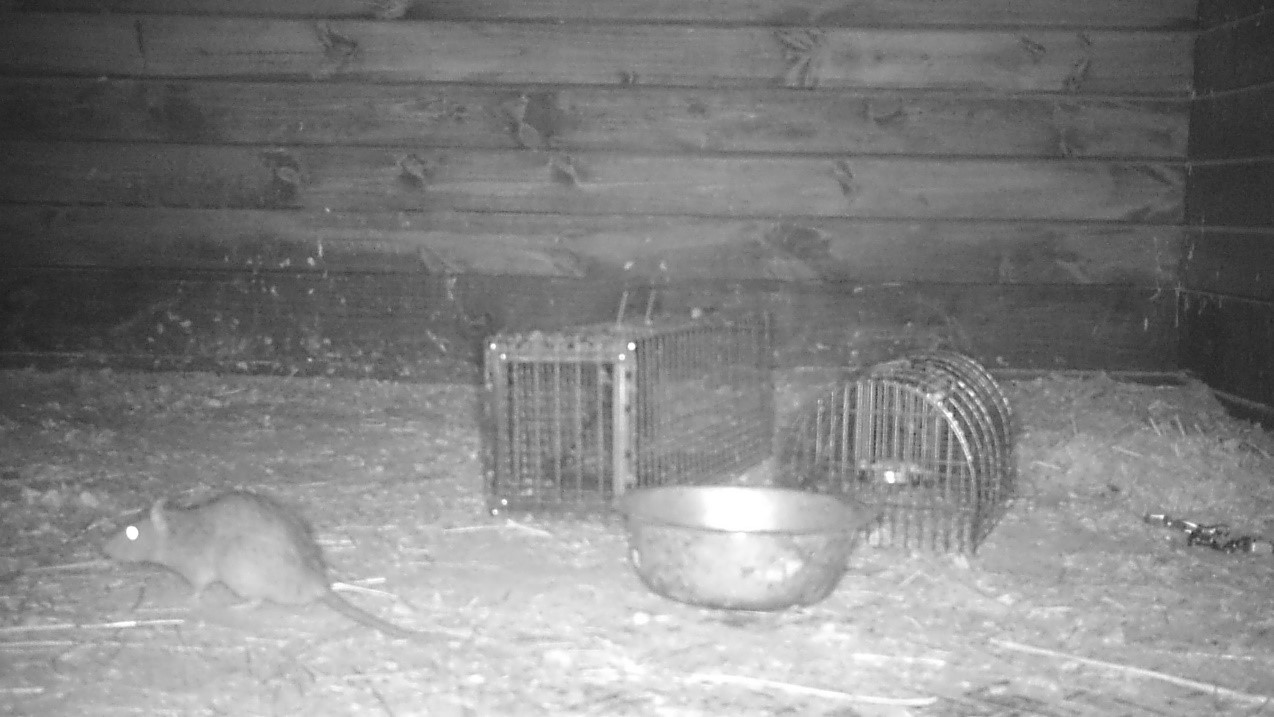Permanent Rat Control for the tri-cities
Rats are hard to trap because of their instinctive wariness and high learning capacity. Most people don't understand what they are up against when they begin to trap rats.
Regionally, most rat exterminator companies use poison in bait boxes to control rats. This keeps the customer on the hook for years of payments. Instead of using poison, we use a permanent, comprehensive, rat elimination system. Instead of poisons, Wildlife Company LLC offers a permanent solution to rat problems because throwing down some rat poison does nothing to stop more rats from showing up tomorrow. This system includes:
An inspection that locates all of the entrances.
Control of food sources to help reduce the attraction of rats to the area and the home.
Permanent sealing all of the entrances so that rats cannot reenter.
Trapping rats to eliminate rats left inside the house.
Monitoring during and immediately after trapping to make sure that all the rats have been removed.
Tri-cities Rat infestaion Trends
Rats infestations in the Tri-cities tend to show up in clusters and are not as evenspread as in larger cities. The epicenter of this cluster may be a poorly managed dumpster, home with accumulated garbage, or maybe something as innocent as a bird feeder with spilled bird food that serves as a starting point for the infestation. One or two initial rats grow into a spreading population that test the surrounding area for other food sources and den sites. Once they find them, new colony sites establish themselves.
In the past few years back yard chickens have become more popular in this area. That is certainly true in this region. Panic over Covid-19 exacerbated this trend. Sales of chicks and feed were at an all time high this spring. Waste grain and poorly stored feed from back yard chicken coops serves as an attractor and creates problems for neighbors who receive “visitors” from next door. As a result, rat outbreaks have risen. If your home has available food and den sites (lots do and don’t know it) and is near one of these rat outbreaks, you will be host to a new colony of rats. Rats may decide just to den in your home and feed next door or they may exploit newly found food sources at your house.
After some thought, the customer is almost always aware of where their rats came from. I recall a restaurant in Johnson City located near another restaurant that did a poor job of managing their dumpster. High rat populations in that area were common knowledge, but my customer could do nothing about what was happening on the neighboring property. We had to focus on preventative measures on his own property.
Crawlspace rat specialist
Homes in our region tend to have crawlspaces and rats love crawlspaces. Fortunately, I love catching rats in crawlspaces. Crawlspaces give rats privacy and a secure place to raise their young. I currently run seven different types of rat trap. Each one works best in a different situation. I have traps that can be used upstairs, but my favorite traps work best in crawlspaces where I don’t have to worry about children or pets bothering them. They are my most rat efficient gear. I even have one trap I tweaked up just for the “hard to catch” rat.
We Evict Rats Permanently
This Norway rat was trapped in a special “force through” trap set that was placed over the entrance into the crawlspace. Once the trap is removed, the hole will be plugged. If the hole were not sealed, this rat and his children would be able to access the home indefinitely.
In one simple word, exclusion. Trapping rats alone will not solve your problem. If the rats are traveling from your neighbors house to have dinner and living in your house? Your neighbor may be generating an unlimited number of rats and that is out of your control. One fundamental principal that a good critter controller understands is that if you are going to give the customer their moneys worth, you have to seal up the building. Otherwise, the customer is perpetually having to call you back because of re-infestations. In professional circles, this process is referred to as exclusion.
Quality exclusion work requires a knowledge of common rat entry points, how to seal these points, and the willingness to get down and dirty to seal them up. Excluding rats will require wiggling through crawlspaces and lying on the ground to pack entry points on the ground. Exclusion work also requires materials be used that cannot be chewed out by rats wanting to get back into the building.
How do You know That Your rats are gone?
Detecting the presence of rats is more difficult than trapping rats. You may still have rats; but the rats have become wise to your trapping methods and are not showing up in your traps. Rats, especially in low numbers, may not be seen or heard. One homeowner who had successfully trapped 10 rats was surprised to find out that another 5 had been hiding out in her home and raiding the kitchen at night. In the end, we got rid of her rats, but it was quite a job. I wrote a story about the experience. It was THE MILLION DOLLAR HOME, THE RATS WHO ATE DOG FOOD, AND HOW I CAUGHT THEM WITH TRACKING POWDER Completely eliminating rats from a building is a difficult process and hiring a professional is often necessary.
Don’t get too focused on traps though. I see, literally, hundreds of designs for rat traps when I search the internet. Some ancient, and some new. People think that a better rat trap is the answer, but a new trap is not likely to solve your problem. You have to understand the species that you are dealing with. Rats are one of the most difficult species to control that I deal with. I always tell my customers that rats and mankind have had an unpleasant relationship for thousands of years. They have been raiding our food and we have been trying to kill them.
Rats also learn very quickly from past bad experiences. Anything that creates a bad experience for the rat will be avoided in the future. If you have a trap miss a rat, that rat has been “educated” and is unlikely to repeat the mistake. You better have another plan ready to deal with that rat.
Good Sense of Smell
Rats also have a keen sense of smell. They can smell you on the trap. They can smell past foods that were on the trap; and they can probably smell the last rat that was killed in the trap. If they associate your smell with a negative experience this can also create issues. This makes rats one of the most difficult species that we must trap. Yet, trapping is a critical part of a necessary trapping/exclusion program that will eliminate rats long-term. Poisoning is not a long term solution to a rat problem.
Rats that have had a bad experience as a result of sloppy trapping procedures or ineffective use of poisons learn from this experience and become much harder to control. Remember what was mentioned above. Rats are naturally reluctant to feed on new foods. So, think about it. What about rats that have eaten something that made them feel sick are unlikely to repeat the mistake. “Lessons” that they learn stay with them for months according to researchers. Rats that have a near miss in a trap also become problem rats. These rats become much more cautious and are likely to avoid traps regardless of bait changes and trap-style changes. One customer who had a rat that had survived poisoning and trapping took several weeks to kill.



